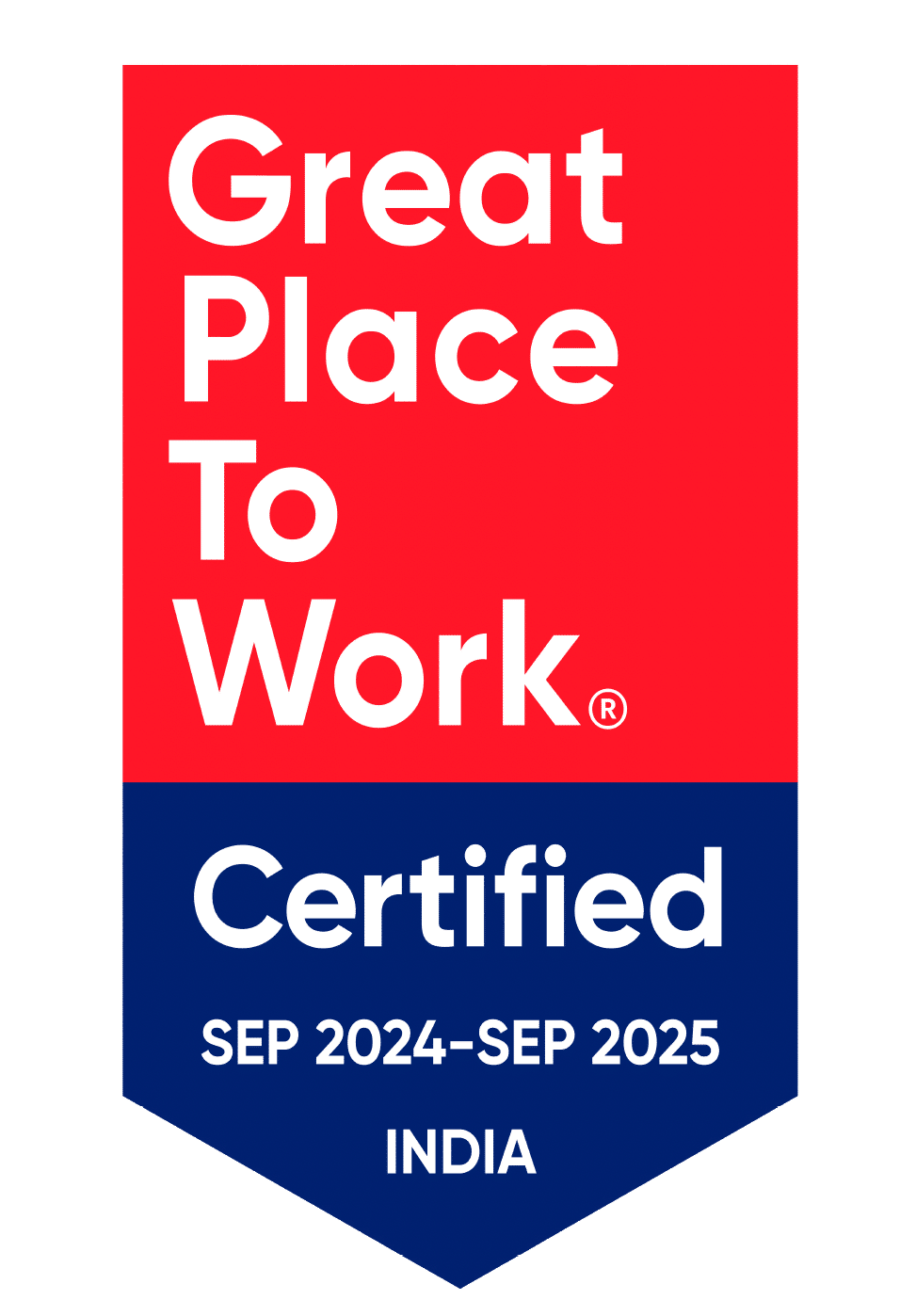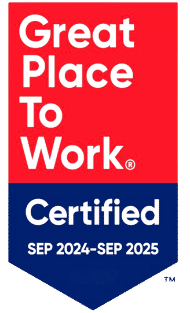Why Growing Companies Should Prioritize a Scalable People Directory
_SWQUlJtjj.png)
Companies are growing quicker than ever. Whether it’s a small startup adding new team members every month or a mid-sized business expanding into new markets, growth brings exciting opportunities. But with growth comes challenges, and one big challenge is keeping everyone connected and organized. That’s where a scalable people directory comes in. You might be wondering what it is and why it matters so much. Don’t worry—this blog will break it all down for you in simple terms and explain why every growing company needs one.
What Is a Scalable People Directory?
Let’s start with the basics. A people directory is like a digital address book for your company. It’s a system that lists all your employees, their roles, contact details, and other important information. Think of it as a one-stop shop to find out who works where and does what. Now, when we say “scalable,” we mean it’s built to grow with your company. It’s not just a static list
that works for 10 people and falls apart when you hit 100—it’s flexible and can handle more employees, new departments, and even new locations without breaking a sweat.
Imagine a small company with five employees. Everyone knows each other, and finding someone’s phone number is as easy as shouting across the room. But what happens when that company grows to 50, 500, or even 5,000 employees? Suddenly, you can’t rely on memory or sticky notes. A scalable people directory steps in to keep things smooth and organized, no matter how big the team gets.
Why Does Growth Make This So Important?
When a company grows, things change fast. New people join, teams split into departments, and offices might pop up in different cities or countries. Without a proper system, it’s easy for chaos to take over. Employees might waste time figuring out who to talk to for a project. Managers might struggle to keep track of their teams. And new hires? They’ll feel lost trying to navigate the company.
A scalable people directory solves these problems. It’s like a map that helps everyone find their way, no matter how big or complicated the company becomes.
Let’s dive into the top reasons why growing companies should make this a priority.
1. It Saves Time and Boosts Efficiency
Time is money, especially for growing companies. When your team is small, finding the right person to answer a question or help with a task is quick. But as the company expands, that process gets slower. Employees might spend hours emailing back and forth or searching through outdated spreadsheets just to find the right contact.
A scalable people directory fixes this. It puts all the information in one place, searchable with a few clicks. Need to find the marketing manager in the Chicago office? Type their title or location, and boom—there they are. No more digging through emails or bothering coworkers for help. This saves time for everyone, from interns to executives, letting them focus on their actual work instead of playing detective.
Plus, as the company grows, the directory grows too. It can handle thousands of entries without slowing down, so efficiency stays high even when the team doubles or triples in size.
2. It Helps New Employees Settle In
Starting a new job is tough, especially in a growing company. New hires often feel overwhelmed trying to figure out who’s who and how things work. Without a clear way to learn about their coworkers, they might feel isolated or hesitant to ask for help.
A scalable people directory makes onboarding easier. It gives new employees a quick way to see the company’s structure—who reports to whom, which teams exist, and who they might need to talk to. Some directories even include fun details like photos or hobbies, helping newbies feel more connected to their colleagues.
For example, imagine a new designer joining a 200-person company. They need to collaborate with the product team but have no idea who’s on it. With a people directory, they can search “product team,” see the names and roles, and send a message—all in minutes. That’s a huge win for making them feel welcome and productive from day one.
3. It Keeps Everyone Connected Across Locations
Growth often means spreading out. A company might open a second office in another state or even another country. While this is exciting, it can make communication tricky. Teams in different locations might start to feel disconnected, like they’re working for separate companies instead of one big team.
A scalable people directory bridges that gap. It’s online, so anyone can access it from anywhere—whether they’re in New York, California, or halfway around the world. Employees can find coworkers in other offices just as easily as those down the hall. This keeps the company feeling united, even when it’s physically spread out.
For instance, if a sales rep in Texas needs to coordinate with a developer in India, they don’t have to guess who to call or wait for someone to make an introduction. The directory gives them the name, role, and contact info instantly. That kind of connection is gold for teamwork and morale.
4. It Supports Better Teamwork
Great teamwork is the backbone of any successful company, and it’s even more critical when you’re growing. Projects get bigger, teams get more specialized, and people need to work together smoothly to get things done. But collaboration falls apart if employees can’t find the right people to work with.
A scalable people directory makes teamwork a breeze. It shows who’s on which team, who’s an expert in what, and how to reach them. Let’s say a project manager is kicking off a new campaign. They need a writer, a designer, and someone from sales. Instead of asking around or hoping for luck, they can use the directory to find the perfect people fast. This cuts down on delays and keeps projects moving.
As the company grows, the directory can also track new skills or roles. If someone switches from marketing to operations, the system updates, so everyone knows where they fit. That flexibility keeps teamwork strong, no matter how much the company changes.
5. It Reduces Confusion and Mistakes
Growth can bring confusion. Departments might overlap, roles might shift, and people might end up with outdated info. For example, if an employee leaves and no one updates the team list, someone might waste time trying to contact them. Or if two people have similar titles, it’s easy to mix them up.
A scalable people directory cuts through the mess. It’s designed to stay accurate and up-to-date, even as the company evolves. Managers can add new hires, remove old ones, and adjust roles in real time. Everyone sees the same current information, so there’s no guesswork or errors.
This is especially helpful for things like email lists or meeting invites. Instead of accidentally leaving someone out or including the wrong person, employees can pull the exact team roster from the directory. Fewer mistakes mean smoother operations and happier teams.
6. It Improves Security and Access Control
As companies grow, they handle more sensitive information—like customer data, financial records, or trade secrets. Not everyone should have access to everything, and keeping track of who can see what gets harder with more employees.
A scalable people directory can help with security too. Advanced versions let managers set permissions, so only certain people can view or edit the directory. For example, HR might see everyone’s personal details, while regular employees only see names and work emails. This protects privacy and keeps sensitive info safe.
Plus, if someone leaves the company, their access can be cut off instantly. The directory updates, and no one’s left wondering if an old employee still has a login. That’s peace of mind for growing businesses dealing with bigger risks.
7. It Prepares You for Future Growth
Here’s the thing about growth: it doesn’t stop. A company that’s adding 20 employees today might add 200 next year. If you don’t have systems in place to handle that, you’ll hit a wall fast. A scalable people directory is like an investment in the future—it grows with you, so you’re never caught off guard.
Unlike a basic spreadsheet or paper list, a scalable directory is built to expand. It can handle more users, more data, and more complexity without needing a total overhaul. That means when your company doubles in size or opens a new branch, the directory adapts instead of breaking. You won’t have to scramble to replace it or start over from scratch.
Think of it like building a house. You wouldn’t put up a tiny shed and expect it to fit a growing family—you’d plan for extra rooms. A scalable people directory is the same way: it’s ready for whatever’s next.
8. It Boosts Company Culture
A strong company culture keeps employees happy and motivated, but it’s tough to maintain when the team keeps growing. People start to feel like just another name on a payroll instead of part of a community. A scalable people directory can actually help fix that.
How? By making the company feel smaller and more personal. Employees can see everyone’s names, faces, and roles, which builds a sense of belonging. Some directories even let people add personal touches—like their favorite food or a fun fact—which sparks conversations and friendships.
For example, an employee might notice a coworker loves hiking, just like they do. That could lead to a chat, a connection, and a stronger team bond. Little things like that add up, keeping the culture alive even as the headcount climbs.
9. It’s Cost-Effective in the Long Run
Growing companies often worry about spending money on new tools. Cash might be tight, and every dollar counts. But a scalable people directory isn’t just an expense—it’s a money-saver over time.
Think about the costs of not having one. Employees waste hours searching for contacts or fixing mistakes from outdated info. New hires take longer to get up to speed. Projects stall because teams can’t coordinate. All that lost productivity adds up fast.
A good directory cuts those costs. It’s a one-time setup that pays off by keeping things efficient and organized. And because it’s scalable, you won’t need to buy a new system every time the company grows. It’s a smart way to stretch your budget while setting up for success.
10. It Shows You’re Serious About Growth
Finally, prioritizing a scalable people directory sends a message. It tells your team—and your customers—that you’re not just growing by accident. You’re planning for it, preparing for it, and building a foundation to handle it. That kind of foresight builds trust.
Employees see that you’re investing in tools to make their lives easier, which boosts morale. Customers notice that you’re organized and professional, which builds confidence in your brand. It’s a small step that shows you’re playing the long game—and that’s a big deal in today’s competitive world.
How to Get Started
Convinced yet? Setting up a scalable people directory doesn’t have to be hard. Here’s a quick game plan:
Assess Your Needs: How big is your team now, and where do you expect to be in a year or two? Think about what info you’ll need—like names, roles, locations, or skills.
Choose a Tool: There are tons of options out there, from simple software to full HR platforms. Look for something easy to use, cloud-based (so it’s accessible anywhere), and able to grow with you.
Start Small: Add your current employees first. Make sure everyone’s info is correct before expanding.
Train Your Team: Show everyone how to use it. A quick demo or guide can get them comfortable fast.
Keep It Updated: Assign someone (like an HR person) to add new hires and remove old ones. Regular updates keep it useful.
Once it’s running, you’ll wonder how you ever managed without it.
Real-Life Examples
Still not sure? Picture this: A tech startup begins with 15 people in one office. They use a shared Google Doc to track everyone’s info. It works fine—until they hit 50 employees across two cities. The Doc gets messy, people miss updates, and collaboration slows down. They switch to a scalable people directory, and suddenly everyone’s on the same page. Projects speed up, new hires jump in faster, and the team feels connected again.
Or take a retail chain adding new stores. Without a directory, managers in different locations struggle to share staff or ideas. With one, they can see who’s available where, making scheduling and teamwork a snap. Growth becomes an asset, not a headache.
Conclusion
Growing companies have a lot on their plate—new hires, new goals, new challenges. A scalable people directory might not sound flashy, but it’s a game-changer. It saves time, connects teams, cuts confusion, and sets you up for whatever’s next. It’s like the glue that holds a growing business together, keeping everyone moving in the same direction.
So, if your company’s on the rise, don’t wait. Prioritize a scalable people directory today—consider a tool like Employee Directory 365 to make it happen. It’s a simple step that pays off big—today, tomorrow, and years down the road.
Frequently Asked Questions
What exactly is a scalable people directory?
A scalable people directory is a digital tool that lists all your company’s employees, their roles, contact info, and sometimes extra details like skills or locations. “Scalable” means it can grow with your company—whether you have 10 people or 10,000, it still works smoothly.
Can’t we just use a spreadsheet instead?
You can, but spreadsheets get messy fast. When you add more employees or offices, they’re tough to update and search. A scalable people directory, like Employee Directory 365, is built to handle growth and makes finding info way easier.
How do I keep it up to date?
Assign someone, like an HR person, to add new hires and remove old ones. Many tools let you update in real time, so it’s not a big chore.
Can it improve company culture?
Definitely! Seeing everyone’s names, roles, or even fun facts (like hobbies) helps people feel connected. It makes a big company feel smaller and friendlier.










_svxLrd-8yH.png)

_2VYSFUTN5m.png)

_JiluXJRGNl.svg)

_2djTKNocf.png)





_Rapo0hRMBy.png)










